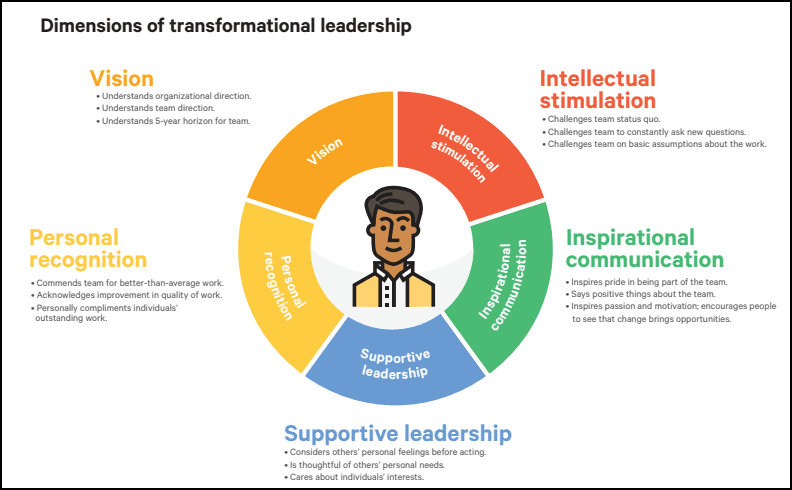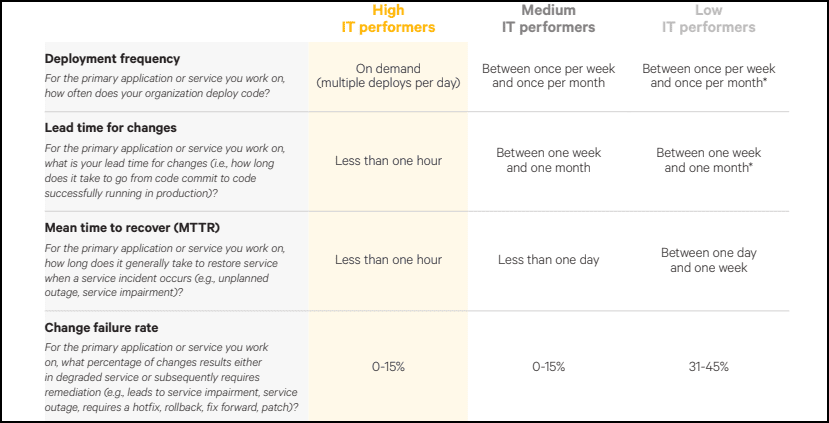As per a recent forecast by Gartner, Global IT Spending will reach $3.7 trillion in 2018 with main drivers of growth being projects in digital business, blockchain, Internet of Things(IoT), and progression from big data to algorithms to machine learning to artificial intelligence (AI).
Today, software has become critical for almost every organization. They rely heavily on software, nearly for every function of their business. Alignment of IT to business, increased competition and eternally shifting digital landscape are the important reasons for this dependency.
Given the increasing importance of software for every digital business, IT enterprises are doing more application development and are looking for best DevOps practices to deliver software faster, continuous delivery workflow with improved reliability and with minimum errors.
What is DevOps?
DevOps is about quick and better delivery of software or IT services with the adoption of agile technologies and lean practices.
DevOps teams utilize automation tools, preferably to leverage an increasingly programmable and dynamic infrastructure from a life cycle and to optimize and automate their entire software production system, while maintaining high quality and security.
Why DevOps is important for digital transformation?
One of the key findings of 2017 State of the DevOps Report say that “DevOps practices are the foundation of every company’s digital transformation, and digital transformation impacts a company’s performance“.
Living in the age of digital transformation, businesses require more revolutionary method to get work done, tools that manage business, cross functional teams performance, and user data all from one platform.
DevOps is a methodology which brings development and operations together and facilitate improved collaboration and information sharing between two cornerstones of an organization. This empowered collaboration helps in the rapid production of qualitative products and services and also in improving the products. Use of DevOps also ensures the quality of application updates and infrastructure changes.
With DevOps, organizations get the ability to release new features and fix bugs at faster pace, thus respond and serve their customers better and compete more effectively in the market.
Organizations are using Cloud DevOps for flexibility, ease of use and speed.
DevOps environment best YouTube channel for competitive exam preparation, like REET, Delhi Police Constable Classes
helps an IT/ digital organization to deliver more value and of higher quality, provide its users with an exceptional experience, recover faster from production and infrastructure outages and prevent failures.
Organizations utilize software for different aspects, like providing better customer experience or engaging with them. Sometimes DevOps adoption enables delivering software that customers touch, like customize your shoes ability on Nike.com or making a direct claim facility on Travelers mobile app. Sometimes it means delivering software which the customer has never seen or a software that empowers both company’s employees and the partners with better experience.
2017 State of DevOps Report reveals strong evidence that best DevOps best practices lead to higher IT performance and companies which have adopted DevOps tools and DevOps principles, have reported to achieve –
- 46 times more frequent software deployments than their competitors.
- 96 times faster recovery from failures.
- 440 times faster lead time for changes.
- 5 times lower change failure rate.
- Operational efficiency and improved levels of customer satisfaction.
Thus, with agile DevOps, all digital organizations – profit and non – profit, are able to achieve their goals, no matter what their mission is.
What affects an organization’s ability to develop and deliver software?
- Leadership effect on technical practices, and process improvement changes.
- Application’s architecture, and the structure of the teams that build it.
- Automation and management practices.
Thus, an organization needs to practice some principles, essential to DevOps success and business outcomes, simultaneously.
5 key DevOps principles and practices for successful business outcomes
1. Cultivate and develop high performing teams
By 2020, 50 % of the CIOs who have not transformed their team’s capabilities will be displaced from their organizations’ digital leadership teams – Gartner
So, for successful DevOps transformation, DevOps companies need to have high performing leaders with transformational characteristics, on board.
What does it mean to be a transformational leader?
Transformational leader is an engaged leader who enables those practices which correlate with high performance.
He supports team experimentation and innovation for faster and better creation and implementation of products. He works across organizational silos for strategic alignment and supports effective communication and collaboration between team members in pursuit of organizational goals.
He is an engaged leader who implements technologies and processes that enable developer productivity, reduces code deployment lead times and supports more reliable infrastructures.
Characteristics of a transformational leader that are correlated to high IT performance:

Thus, digital organizations should aspire to build high performing teams.
2. Achieve faster throughput without ignoring stability, build quality into the process
Presence of leaders with transformational characteristics is not enough to achieve high DevOps outcome and high IT performance.
IT performance is measured along two dimensions, throughput of code i.e. deployment frequency and change lead time and stability of systems i.e. mean time to recover and change failure rate.
High performing DevOps teams ideally have increased deployment frequency, faster change lead times, reduced mean time to recover(MTTR) and low change failure rates.
They invest in building quality into the process and this gives them an advantage of high customer satisfaction. They have many more chances to deliver new value.

The outcome is faster time to market, better customer experience, and higher responsiveness to market changes.
3. Automate your DevOps process for faster feedback cycle and innovation
Automate your manual tasks, particularly configuration management, testing, deployment, and change approval. This DevOps automation is likely to free your technical staff for more innovations and will quicken feedback cycle simultaneously, thus adding more value to the organization.
4. Shift to loosely coupled services for higher throughput, quality and stability
DevOps success of an organization also depends on a suitable architecture and good technical practices.
Another DevOps practice essential to achieve higher IT performance and continuous delivery is to allow practitioner tool choice, based on the way of working and the tasks to be performed.
Shift to those services which can be developed and released independently. Build such architecture and teams which are loosely coupled – free of dependency. Design architecture of your delivery teams such that teams can test, deploy and change their systems without depending on other teams for additional work, resources, or approvals, and without back-and-forth communication.
5. Practice lean product management and lower deployment pain
Work in small batches, set your development teams free. Entrust them with authority to create and change specifications without requiring approval, of course as part of development process and seek users’ feedback as an input, actively.
This will improve and quicken your software delivery pipeline and will help you in continuous and speedy delivery of what your customers want.
Closing Note
One needs to acknowledge how an organization gets its work done, how it is structured, how its processes and teams work for the success and failure of DevOps in an organization.
Source: https://puppet.com/resources/whitepaper/state-of-devops-report









Great content! This is exactly the sort of thing I was looking for. Thanks for your help 🙂
Thank you for sharing!